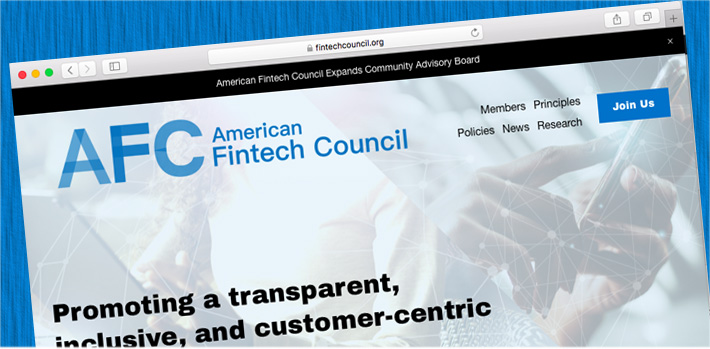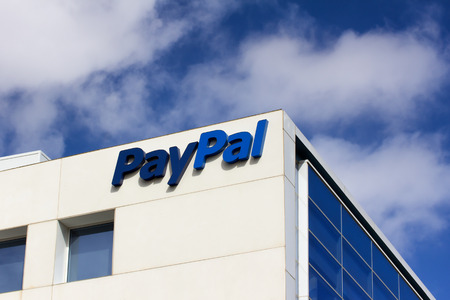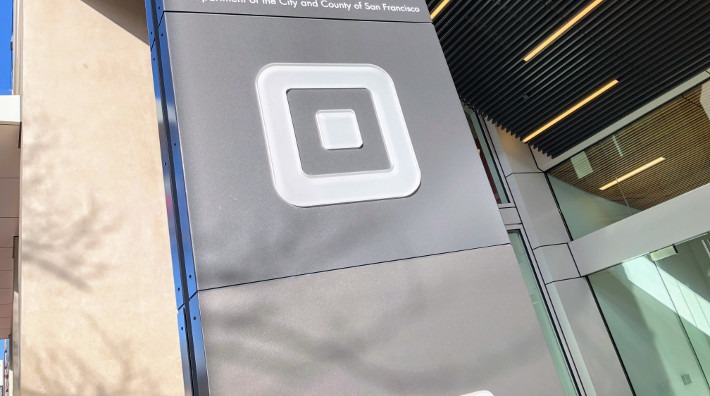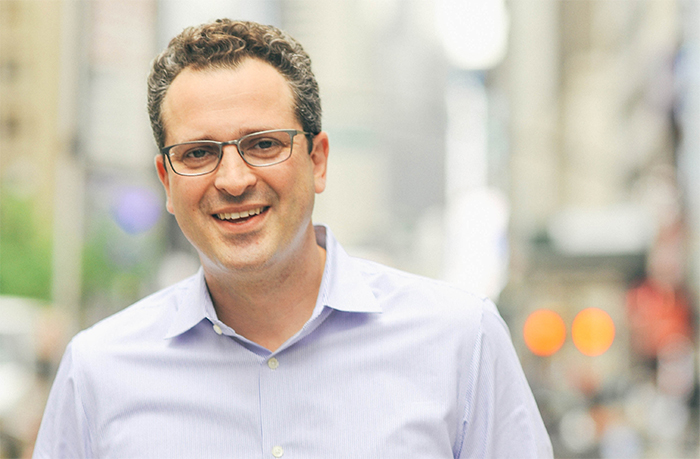Archive for 2021
North Carolina Joins States Proposing Commercial Financing Disclosures
May 12, 2021 North Carolina is the latest in a series of states to introduce a commercial financing disclosure bill.
North Carolina is the latest in a series of states to introduce a commercial financing disclosure bill.
The “Small Business Truth in Financing Act” introduced on May 11th, would cover business loans, factoring, and merchant cash advances.
The language was copy and pasted from bills elsewhere, like the recent one in Connecticut. The “double dipping” term is noticeably absent from this one, however.
The North Carolina bill was introduced by Rep James D. Gailliard (D). If it succeeds in moving forward, it’s written to go into effect on May 1, 2022.
AFC Trade Group Surpasses 100 Members
May 12, 2021 Two months ago, the Marketplace Lending Association and Online Lending Policy Institute merged, forming the American Fintech Council (AFC).
Two months ago, the Marketplace Lending Association and Online Lending Policy Institute merged, forming the American Fintech Council (AFC).
American Fintech Council has grown to 107 members. The trade group is a cross-section of payments, lending, legal, and data sectors of the fintech industry, set to lobby Washington lawmakers and set standards. The member list includes names like LendingClub, Varo, SoFi, Cross River, and Rocket Mortgage. The group also launched a Community Advisory Board, with Boston University and Cambridge departments of alternative finance working on “responsible practices in the industry.”
“The American Fintech Council is poised to play a critical role in the US regulatory landscape,” Colin Walsh, founder-CEO of Varo, said in a press release.
According to the website, the group’s core principles include:
1. Supporting the use of technology to develop financial services to enrich people’s lives.
2. Offering affordable, transparent, and responsible products.
3. Advancing financial inclusion and racial equity.
4. Embracing and supporting regulation that furthers and promotes responsible innovation.
Members must support a 36% APR cap on the cost of loans, adhere to the Small Business Borrower’s Bill of Rights, and offer “transparent products and fees.”
“We are thrilled to welcome these new members and leadership groups to the AFC team and look forward to working with them to promote policies that create an open and efficient marketplace that benefits everyone,” said Garry Reeder, CEO of the AFC. “Our members are constantly working to better serve consumers and communities around the country.”
In Wake of FTC’s Loss of Power, It Turns to Gramm-Leach-Bliley Act?
May 11, 2021 The FTC suffered a huge blow when the US Supreme Court revoked its presumed authority to seek restitution under Section 13(b) of the FTC Act, so much so that a pending lawsuit it had against RCG Advances, LLC, appeared to be in mortal danger.
The FTC suffered a huge blow when the US Supreme Court revoked its presumed authority to seek restitution under Section 13(b) of the FTC Act, so much so that a pending lawsuit it had against RCG Advances, LLC, appeared to be in mortal danger.
On Tuesday, however, attorneys for the FTC informed the Court that it intended to file an amended complaint that would seek civil penalties for violations of Section 521 of the Gramm-Leach-Bliley Act.
According to the FTC, “The Gramm-Leach-Bliley Act requires financial institutions – companies that offer consumers financial products or services like loans, financial or investment advice, or insurance – to explain their information-sharing practices to their customers and to safeguard sensitive data.”
Section 521 prohibits the obtaining of customer information by false pretenses.
An amended complaint has not yet been filed. It bears watching if Gramm-Leach-Bliley becomes a viable alternative avenue that the FTC relies upon following the loss of its most potent tool.
Forward Financing Wins Customer Service Award, Originates $165M in 2020
May 10, 2021 Forward Financing won a Silver Stevie Award for the Best Customer Service Department of the Annual American Business Awards, for their work helping clients during the pandemic year. The firm originated a total of $165,826,203 across 6,142 advances in 2020, a representative said.
Forward Financing won a Silver Stevie Award for the Best Customer Service Department of the Annual American Business Awards, for their work helping clients during the pandemic year. The firm originated a total of $165,826,203 across 6,142 advances in 2020, a representative said.
“We are truly honored to receive recognition for the fantastic job our Account Servicing team does every day to help our small business customers,” Justin Bakes, co-founder and CEO, said. “Particularly in 2020, that help was needed more than ever before to help small business owners get through the most difficult months of the pandemic.”
The firm said that in 2020, thousands of customers reached out to the Account Servicing Department (ASD) to request payment relief from the pandemic shutdown. The company trained 18 team members from different departments to join ASD, nearly tripling the size of the team, the firm said.
Forward competed with more than 3,800 nominations submitted this year for organizations across the US. Since 2012, Forward Financing has provided more than $1 billion in funding to more than 26,000 small businesses.
PayPal Originated ~$2.6B in Funding During 2020
May 10, 2021 PayPal reported originating a total of about $2.6B in capital for U.S. SMBs in 2020, which doesn’t include the more than $2B in PPP loans it arranged.
PayPal reported originating a total of about $2.6B in capital for U.S. SMBs in 2020, which doesn’t include the more than $2B in PPP loans it arranged.
“PayPal delivered record performance in 2020 as businesses of all sizes have digitized in the wake of the pandemic,” Dan Schulman, President and CEO, said.
Exact origination figures are hard to track through the firm’s quarterly reports. The Working Capital product is only mentioned in passing. At the outset of the pandemic, PayPal reported that they helped merchants by “Granting deferral of repayments on business loans and cash advances at no additional cost.”
Throughout the remainder of the year, PayPal was echoing the problems of the industry and slowed down funding as a whole. In the 2021 first quarter call, John Rainey the CFO Global Customer Operations, said that the firm “Tightened underwriting and strong repayment activity contributed to lower balances in our merchant loan portfolio.”
PayPal’s origination volume fell relative to their 2019 estimate.
Square Capital Originated $392M in SMB Loans in Q1
May 6, 2021 Square Capital originated 78,000 small business loans in Q1 for a total of $392M. That figure does not include PPP lending, which comprised of 57,000 loans for a total of $531 million.
Square Capital originated 78,000 small business loans in Q1 for a total of $392M. That figure does not include PPP lending, which comprised of 57,000 loans for a total of $531 million.
“After pausing flex loan offers from early March to late July of 2020, we have been measured in our ongoing ramp of offers to sellers,” Square said. “Revenue from Square Capital was down on a year-over-year basis due to a lower mix of flex loans during the quarter.”
Square Capital originated slightly under $1 billion in 2020, down from the $2.3 billion in 2019.
Noah Breslow Has Left OnDeck
May 6, 2021OnDeck CEO Noah Breslow announced that as of April 30th, he had left OnDeck. He wrote the following in a May 6th post on LinkedIn:
“It is hard to believe, after a nearly 14 year run, that last Friday was my final day as an OnDecker. Working to build OnDeck with our incredible team, our partners, our board members and investors, and of course, our small business customers was the greatest professional experience I’ve had, and I am eternally grateful for the efforts of everyone involved in the company over so many years. I am proud of everything we accomplished together – pioneering the online lending industry, delivering nearly $14 billion dollars to small businesses, building a trusted brand and phenomenal culture, and achieving numerous industry firsts along the way.
I am especially proud of the way our team and our leaders handled themselves last year under the pressure of COVID. We worked together to navigate a very challenging situation, and I’ll never forget the teamwork and collaboration under stress that allowed us to land the company safely and become part of Enova – a transaction that I firmly believe was the right thing to do for the company’s stakeholders.”
 Though Breslow was not the founder of OnDeck, he was one of its earliest employees and he later steered the company as its chief executive up through and past the point of it going public on the NYSE. In 2020, OnDeck was acquired by Enova.
Though Breslow was not the founder of OnDeck, he was one of its earliest employees and he later steered the company as its chief executive up through and past the point of it going public on the NYSE. In 2020, OnDeck was acquired by Enova.
Breslow updated his LinkedIn profile to say that as of May, he is now an “Operator in Residence” for Bain Capital Ventures.
Bain Capital Ventures posted a lengthy welcome to Breslow on Medium immediately after.
“Noah joins BCV this week as an operating partner, and we couldn’t be more delighted,” wrote Matt Harris, partner at Bain Capital Ventures. “You can reach him at nbreslow@baincapital.com with your next amazing idea.”
Breslow followed it with another post on LinkedIn:
“So, what’s next? Well, those who know me know I am passionate about the craft of entrepreneurship, and I have served as an angel investor and informal advisor to many startups and founders over the years.
After the OnDeck acquisition closed, Matt Harris, a longtime close friend and early OnDeck investor, reached out to me to chat about what might be next. Matt is a special person, and a renowned fintech investor – in fact, Matt was responsible for getting me into OnDeck 14 years ago, and that worked out pretty well! So, when he floated the idea of joining him at Bain Capital Ventures to do this type of work more formally, I was all ears.
I knew I wanted to spend some time working with innovative startups and exploring some new technology areas before diving into my next big thing – after all, it might last another 14 years! So, I am thrilled to announce I am joining Bain Capital Ventures as an operating partner – working with our portfolio CEOs and helping the firm invest in fintech and tech companies across all stages. Excited for what’s next!”
Zoom CEO and Big Banks Rolling Back Remote Work
May 5, 2021 It’s not just you: Zoom CEO Eric Yuan admitted to suffering from video meeting fatigue at the Wall Street Journal’s CEO Council Summit. During a video conference panel called “The Future of Work,” Yuan said he is done with it after sitting through 19 video calls in one day last month.
It’s not just you: Zoom CEO Eric Yuan admitted to suffering from video meeting fatigue at the Wall Street Journal’s CEO Council Summit. During a video conference panel called “The Future of Work,” Yuan said he is done with it after sitting through 19 video calls in one day last month.
“I’m so tired of that,” Mr. Yuan said, “I do have meeting fatigue.”
Yuan said he would begin requiring employees to return to the office at least two days a week. Many WSJ guests at the May 4th conference shared the same sentiment, like JPMorgan CEO Jamie Dimon, who said the firm would begin to bring people back by July.
For creating new ideas, and “for those who want to hustle,” Mr. Dimon said, remote work doesn’t match in person. “I’m about to cancel all my Zoom meetings,” Dimon said. “I’m done with it.”
Along with the announcement from Gov. Cuomo that New Jersey, New York, and Connecticut would begin relaxing all restrictions on May 19th, FIDI hot dog vendors must be excited this week. Goldman Sachs also announced this week through a memo to employees that they should “make plans to be in a position to return to the office” in June.





























